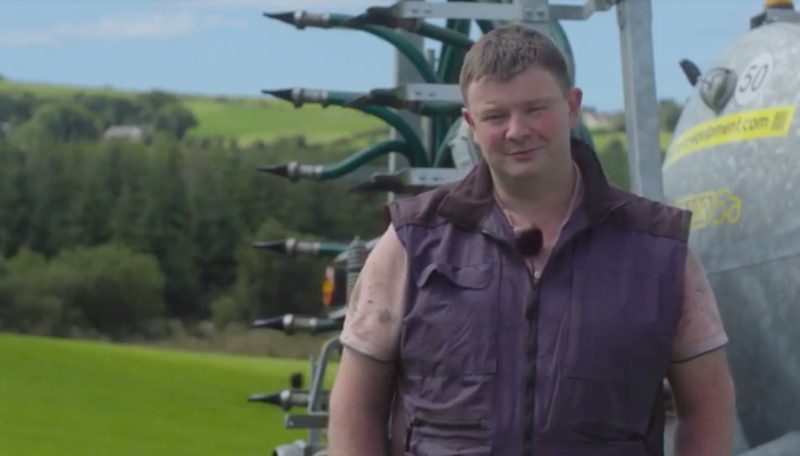
West Cork dairy farmers Victor and Rita Jennings run a 160 pedigree Holstein Friesians herd. Their new 2300 Alpine tanker with Major trailing shoe applicator efficiently recycles their farm waste products back onto their 190 acres of grassland.
Getting the most from their home farm acreage has been the prime goal for Victor and Rita Jennings, a husband and wife farming team based out of Cork, Ireland. They farm 190 acres of grassland and milk 160 Pedigree Holstein Friesians.
“The farm was originally a suckler to beef farm ran by myself and my mother, who still has a major interest in the farm,” explained Victor Jennings. “My wife Rita and I made the decision to move into dairying in 2010 and we have continued to expand the herd ever since.”
Land availability adjacent to the parlour was always the limiting factor for the Jennings family so in 2015 they purchased a zero grazer to help in expanding the herd further. The enterprise is run entirely by Victor, Rita and their children.
“Focus on using all our resources wisely”
“For us, to get the best from our herd on a comparatively small acreage, we chose high-yielding Holstein Friesians and use a zero-grazing system to get the best yield performance. Recycling our farm waste products has been the most cost-effective production method for us. Our focus is on using all of our resources wisely,” said Victor.
The zero-grazing regime uses a ZG80 zero-grazer feeding directly to the cows on an ad-lib basis. Within four to five days after the grass has been harvested, Victor uses his Major Alpine Tanker with a Major 7.5m trailer shoe to apply slurry at the rate of 2500 gallon/acre. Within 25-30 days, the crop is ready for harvesting and feeding to the dairy cows. The surplus grass at peak growth times is taken out for bales which are fed during the winter months.
Minimal grass contamination with trailing shoe
“The grass responds well to the slurry applied with the trailing shoe with minimal grass contamination and we are soon round to harvesting again,” explained Victor. “Because it applies the slurry right where it’s needed, it helps to avoid losses from both evaporation and surface run-off, which is financially beneficial as well as being environmentally considerate. Using a tanker system is the most convenient approach for our operation. We reviewed the market and without doubt the Major Alpine was the most stable and steady tanker available.”
The Jennings purchased their 2300 Alpine tanker though local dealer Atkins farm Machinery. It is designed for undulating ground and has a ‘dropped’ axle which gives it a much lower centre of gravity and is therefore much safer than ordinary tankers.
The Alpine more durable than the average tanker, less ground compaction
“It is built using a separate chassis system which reduces stress on the tank, so it’s a lot more durable than the average tanker. With the large tyres we are using, we get less compaction – even in the wet,” explained Victor. “That’s an important benefit because we are regularly applying slurry to the pastures and we always want to avoid compaction.”
Victor and Rita’s eldest son Daniel added, “I also find it very smooth on the rough country back-roads. What’s even nicer is that we get all these benefits from the Major Alpine tanker and it is highly competitive on price.”